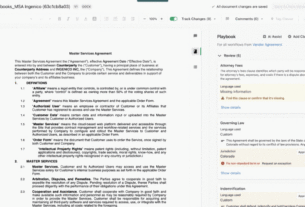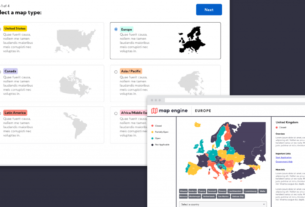After docketing technology company CourtAlert.com sued its competitor American LegalNet (ALN) in September alleging theft of trade secrets, ALN has responded with a motion asking the court to dismiss the lawsuit for failing to state a claim, calling it “baseless” and “a transparent effort to chill lawful competition and embarrass its competitor.”
In the original complaint filed Sept. 19 in the U.S. District Court for the Southern District of New York, and as I previously reported here, CourtAlert.com alleged that ALN, its CEO Erez Bustan, and its regional sales manager Robert Loeb, conspired to steal CourtAlert’s confidential and proprietary information, including client lists, product offerings, pricing, marketing opportunities, and sales and revenue data.
Loeb was formerly CourtAlert’s head of sales and joined ALN last June as sales manager for the Northeast region.
‘Cavalier Attitude’
In its motion to dismiss, filed Nov. 30, ALN argues that CourtAlert’s claims of harm are undermined by its “cavalier attitude” towards pursuing its legal remedies. CourtAlert waited four months to file its lawsuit, ALN says, and when it finally did, it did not seek an injunction to require the return of any alleged confidential information.
ALN further argues that CourtAlert lacks any legally viable claim against it.
“Although Plaintiff alleges that Loeb accessed and misappropriated customer lists and pricing information, it is well established that this information does not constitute a trade secret,” the motion argues. “[B]oth CourtAlert and ALN market their products to law firms. Plaintiff cannot seriously claim that the names of law firms are ‘trade secrets.’ Moreover, CourtAlert publicly posts its products and rates on its website.”
ALN also takes issue with CourtAlert’s claim that Loeb breached the confidentiality and non-solicitation provisions in his employment agreement. Since the information at issue is not confidential, ALN argues, Loeb cannot have violated the confidentiality provision.
The non-solicitation provision, ALN argues, is unenforceable for several reasons, including because it is overly broad and unduly burdensome. The provision lacks any geographic scope; extends for 24 months, more than twice the length of Loeb’s tenure with CourtAlert; and purports to prohibit Loeb from soliciting any customer with whom CourtAlert has ever done business, whether or not Loeb himself ever dealt with the customer.
ALN goes on to argue that the various other claims in CourtAlert’s complaint are equally groundless. But even if they were not, ALN contends, CourtAlert has failed to allege that it has suffered any damages or lost any business.
“Allowing Plaintiff to proceed with their baseless legal claims designed purely to discredit ALN and falsely paint ALN in a negative light would have a disproportionate impact on ALN in the marketplace, because there are so few competitors in the niche marketplace,” ALN argues. “It would be egregious to let Plaintiff exploit the judicial system in an obvious attempt to make up for its failed business strategy.”
‘Inescapable Facts’
In a response filed Dec. 9, CourtAlert paints a very different picture, arguing that its lawsuit should go forward and that ALN’s arguments represent “a desperate effort to avoid the inescapable facts of their misconduct.”
“Defendants were caught red-handed downloading CourtAlert’s highly confidential trade secrets, information developed by CourtAlert’s family-owned-and-run business through substantial efforts over the course of twenty years,” its response contends. “This is the rare case with direct evidence of a disloyal employee conspiring with a competitor and a clear picture of precisely what was stolen.”
CourtAlert’s response asserts that ALN’s motion to dismiss ignored or misconstrued the allegations of CourtAlert’s complaint and failed to apply the appropriate legal standards.
“But they cannot avoid the reality that CourtAlert sufficiently pleads all of its claims, none of which are susceptible to resolution before the parties have conducted discovery,” the response says. “The Court should deny the motion to dismiss in its entirety.”
This week, ALN filed an additional memorandum, replying to CourtAlert’s response, in which it further argues in support of its motion to dismiss and calls CourtAlert’s response “a misguided attempt to salvage its complaint.”
Founded in 1999 by Izzy Schiller, CourtAlert provides case monitoring and management services to law firms and legal departments. Its products and services primarily cover New York state courts, New Jersey superior courts, certain California courts, and the federal courts through PACER.
ALN, founded in 1996, provides a suite of what it calls “Desktop to Courthouse” workflow products for law firms that include eDockets, Docket Direct, Forms Workflow, Smart Dockets and Docket Alerts.

